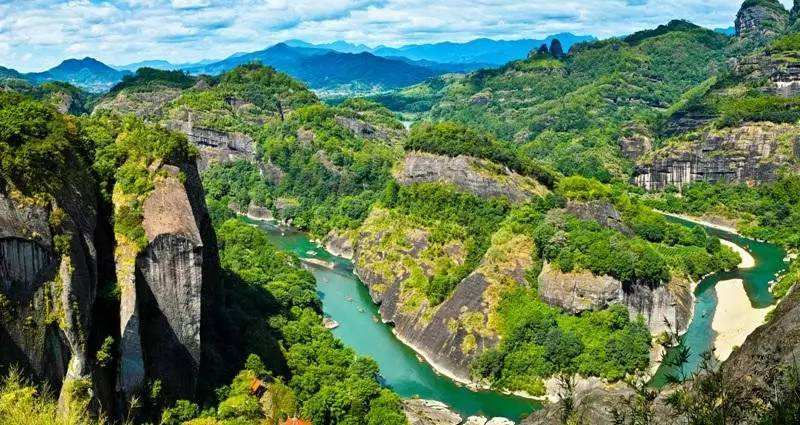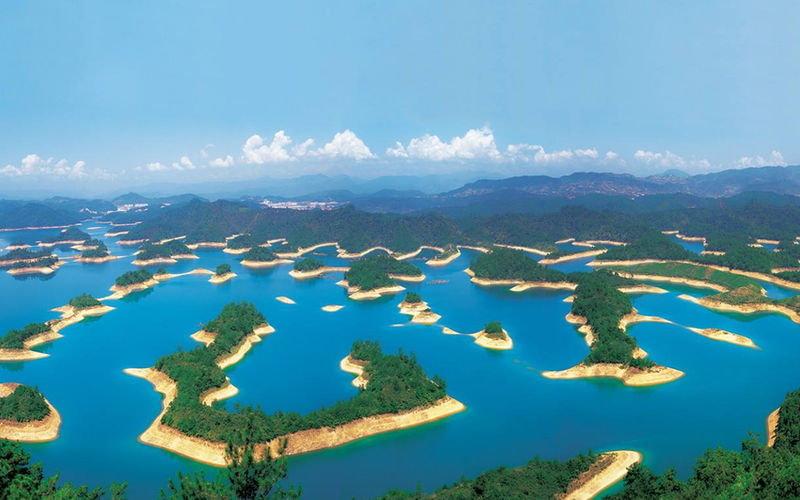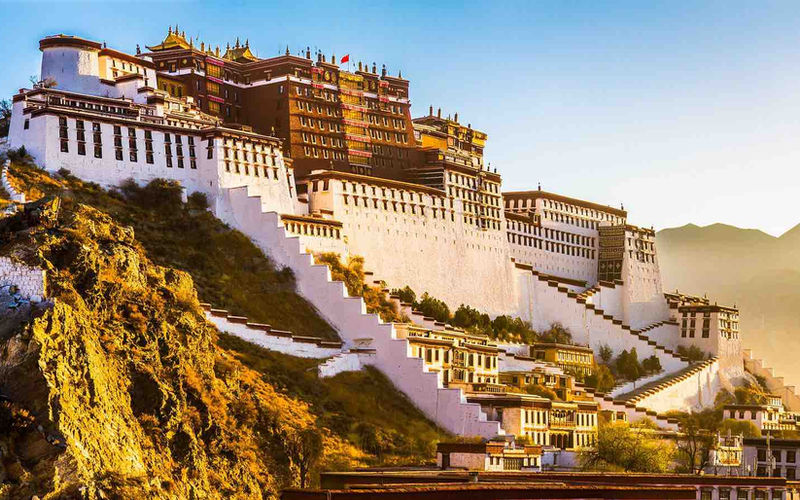Five Great Mountains
In the Chinese creation myth, Pan Gu’s head and limbs incarnated into the Five Great Mountains after he departed.
They are divine, magnificent, and spectacular, believed to be the path to heaven or the residence of different deities.
Therefore, in those great mountains, emperors held grand ceremonies to worship heaven and pray for blessing, and Taoists and Buddhists built temples to practice.
In addition, mountains seem eternal compared to human history.
Hence, they have accumulated many folktales and legends passed on from generation to generation for thousands of years.
Therefore, besides amazing natural scenes, every mountain’s origin and historical and cultural values are also interesting.
Exceptional Mountain Landscapes in China
Besides the Five Great Mountains, many other magnificent mountains have amazing natural scenes, fascinating legends, and significant historical, cultural, and religious values.
Lake Landscapes
According to Tao Te Ching, water is the finest good.
It is soft, shapeless, stays low and indisputable, and nurtures everything in the universe; besides, it is the strongest force capable of destroying everything.
Confucius respected the water as insistent, targeted, and pure, which contains many good virtues that a decent person should obtain.
Therefore, besides the magnificent Yellow River and Yangzte River, lakes in China carry captivating cultural significance, boasting mysterious origins, alluring legends, and profound historical values.
Ancient Cities and Towns
While many modern cities look similar, some notable ancient towns in China stand out with their unique beauty and hold great architectural and cultural values.
These remarkable settlements showcase unparalleled uniqueness and profound significance.
Serving as historical relics, they offer a glimpse into the rich tapestry of China's heritage, where each street and ancient structure tells stories of bygone eras, preserving a living testament to the country's enduring history and cultural diversity.
Cultural Landmarks
These cultural landmarks are more than just marvelous and spectacular manmade feats; they represent the pinnacle of human achievement and ingenuity.
Take, for instance, the awe-inspiring Imperial Palaces and the iconic Great Wall, each boasting exceptional architectural values that transcend mere construction.
Behind these remarkable structures lie not just bricks and mortar but a wealth of exciting stories and fascinating histories.
Gardens
Taoism and Confucianism both value the idea of the “Integration of Universe and Humanity.”
Under this ideology, ancient Chinese Gardens look like miniatures of natural landscapes, with exquisite buildings dotted inside.
However, in historical contexts, classic Chinese gardens still typically fall into two major categories: the Royal Garden in the north and the Private Garden in the south.
Royal Garden in the North
The royal gardens were grand and luxurious, which included real mountains and lakes inside, constructed with spectacular imperial architecture, and witnessed important histories.
Summer Palace and Chengde Mountain Resort are perfect examples of imperial gardens of the Qing Dynasty (1636 — 1912).

Chengde Mountain Resort, Photo from Official Site of Chengde.
Private Garden in the South
Classic southern-style private gardens, exemplified by the Humble Administrator's Garden and Lingering Garden in Suzhou, are known for their smaller and exquisite designs.
These gardens skillfully integrate buildings, ancient philosophy, natural views, and poetic elements within limited spaces.

Lingering Garden, Photo from The Official Site of Suzhou Travel.
Grottoes
Buddhist Grottoes are invaluable art wonders that reveal various aspects of the society that constructed them.
These aspects encompass history, architecture, ceremony, military activity, transportation, musical instruments, dance, costume, makeup, and business



































